The pet product market in Moscow and St. Petersburg is growing at 20-30 per cent per year, which is twice as fast as abroad. However, like other consumer markets in Russia, this market is not very large. According to analysts, it accounts for a fiftieth of the global pet product market. According to the Euromonitor market research agency, its volume is 36 billion roubles (€ 996 mio). At the same time, foreign companies, for example pet food manufacturers, control about 90 per cent of the market, while the share held by Russian manufacturers is minimal (not more than 5-10 per cent). The big players Mars with its familiar brands "Chappi", "Pedigree", "Whiskas" and "Kitekat" controls over 60 per cent of the Russian market. The market share of Nestlé Purina is estimated at 13.9 per cent, and the company accounts for 10 per cent of the premium segment with its "Pro Plan" brand. The market share of Royal Canin, owned by Mars, amounts to 7.5 per cent, which corresponds to 50 per cent of the premium segment. Hill's has a market share of 4.8 per cent. Its market share of the premium segment amounts to one third. The share of other companies accounts for 13.8 per cent. The world giants have their own pet food production plants in Russia, and some of the chains (such as Auchan and Perekryostok) sell pet food under their own brands, purchasing it from independent manufacturers in Russia. As a rule, independent retailers in particular (and not specialised chains) sell pet products. Their market share is 40 per cent in the U.S., but only 25 per cent in Russia. The Russian market resembles both those in the U.S.A. and in Europe. The market share of chain retailers in Moscow is around 20 per cent. Individual stores have a market share of 30 per cent, and supermarkets, hypermarkets and public markets about 50 per cent. The regional markets are less developed. Chains making headway Chains such as Cats & Dogs, Beethoven, 38 Popugayev, Pinscher and 4 Lapy as well as St. Petersburg players such as Lemur and Zolotaya Rybka are among the largest chains selling pet products in Russia today. According to the experts, there are very few chains as yet. If we compare the pet product retail and food retail markets, the pet product retail market lags behind the food retail market by seven or eight years. Pet food is the largest niche in the domestic market. Certainly, there are hotels, spas and beauty parlours for pets, but all of them are…

A dynamic market
The pet product market in Moscow and St. Petersburg is growing at 20-30 per cent per year, which is twice as fast as abroad. However, like other consumer markets in Russia, this market is not very large. According to analysts, it accounts for a fiftieth of the global pet product market. According to the Euromonitor market research agency, its volume is 36 billion roubles (€ 996 mio). At the same time, foreign companies, for example pet food manufacturers, control about 90 per cent of the market, while the share held by Russian manufacturers is minimal (not more than 5-10 per cent). The big players Mars with its familiar brands "Chappi", "Pedigree", "Whiskas" and "Kitekat" controls over 60 per cent of the Russian market. The market share of Nestlé Purina is estimated at 13.9 per cent, and the company accounts for 10 per cent of the premium segment with its "Pro Plan" brand. The market share of Royal Canin, owned by Mars, amounts to 7.5 per cent, which corresponds to 50 per cent of the premium segment. Hill's has a market share of 4.8 per cent. Its market share of the premium segment amounts to one third. The share of other companies accounts for 13.8 per cent. The world giants have their own pet food production plants in Russia, and some of the chains (such as Auchan and Perekryostok) sell pet food under their own brands, purchasing it from independent manufacturers in Russia. As a rule, independent retailers in particular (and not specialised chains) sell pet products. Their market share is 40 per cent in the U.S., but only 25 per cent in Russia. The Russian market resembles both those in the U.S.A. and in Europe. The market share of chain retailers in Moscow is around 20 per cent. Individual stores have a market share of 30 per cent, and supermarkets, hypermarkets and public markets about 50 per cent. The regional markets are less developed. Chains making headway Chains such as Cats & Dogs, Beethoven, 38 Popugayev, Pinscher and 4 Lapy as well as St. Petersburg players such as Lemur and Zolotaya Rybka are among the largest chains selling pet products in Russia today. According to the experts, there are very few chains as yet. If we compare the pet product retail and food retail markets, the pet product retail market lags behind the food retail market by seven or eight years. Pet food is the largest niche in the domestic market. Certainly, there are hotels, spas and beauty parlours for pets, but all of them are…

 Menü
Menü

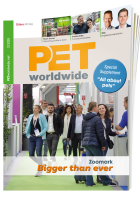




 11-12/2008
11-12/2008
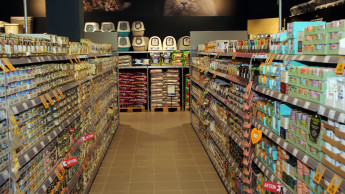

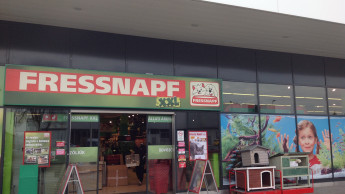
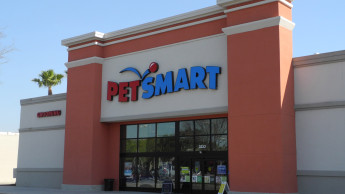
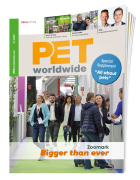
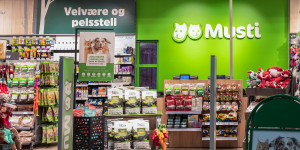
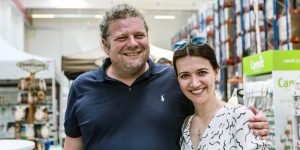
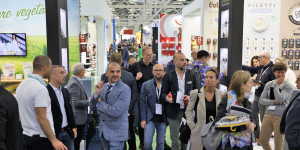

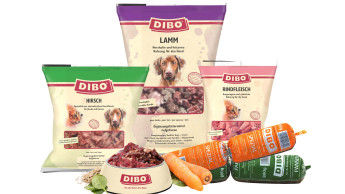

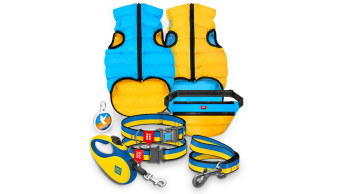
 Newsletter
Newsletter